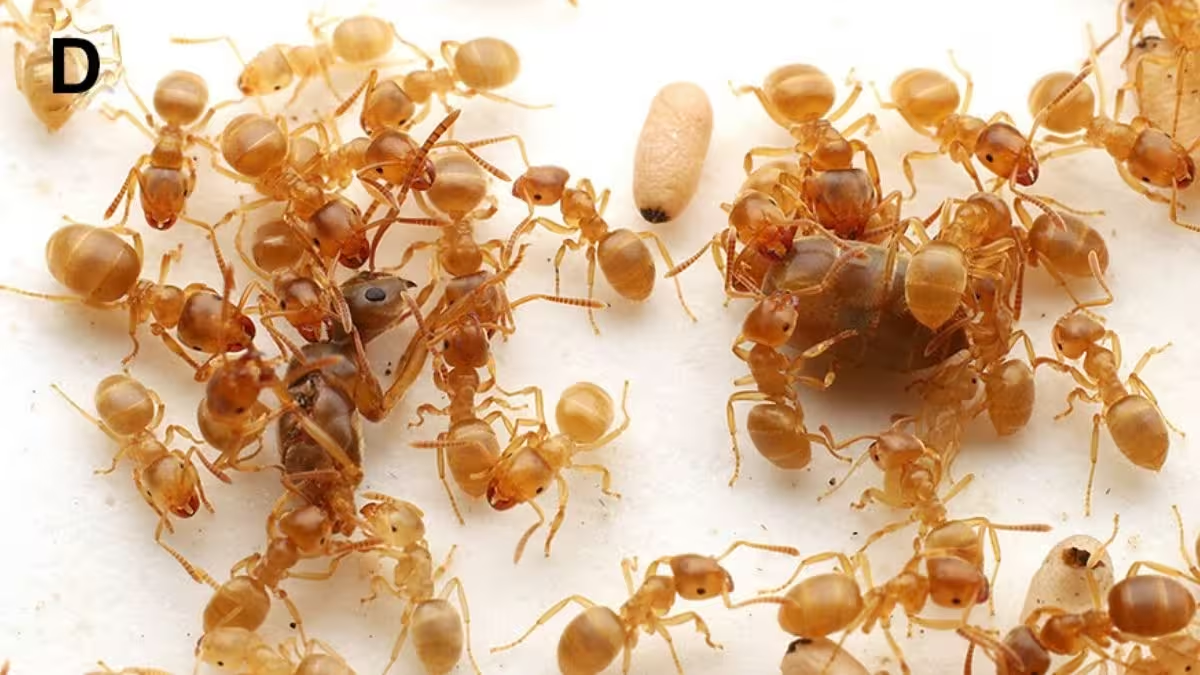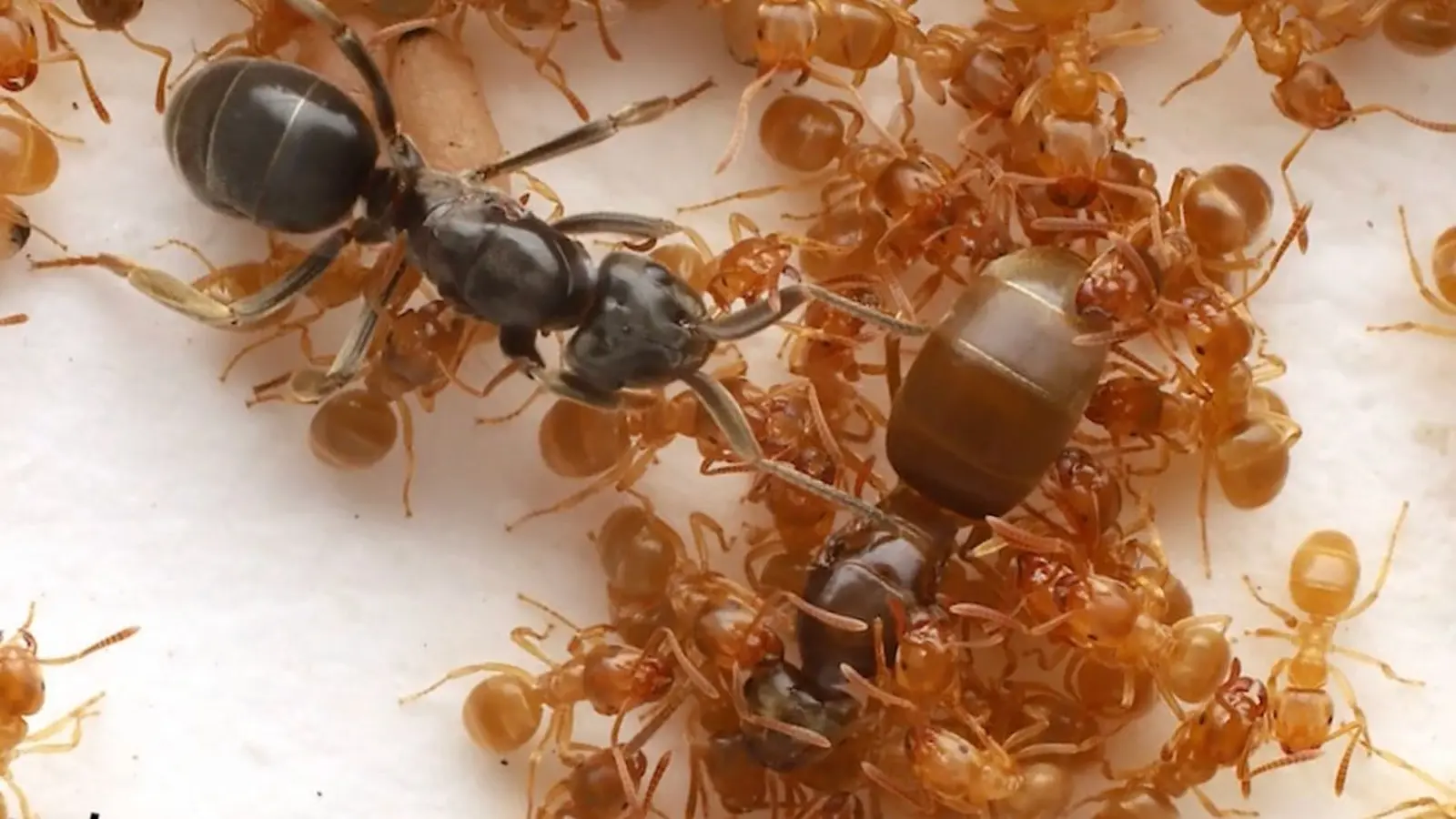3 Minutes
A stealthy intruder can rewrite the rulebook inside an ant colony. New footage and research published in Current Biology show how parasitic Lasius queens infiltrate other nests, coat the resident queen in a hostile scent and trigger workers to kill their own mother — then inherit the colony.
How an intruder turns daughters against their mother
Researchers observed parasitic queens from Lasius orientalis or Lasius umbratus slip into nests of L. flavus or L. japonicus. The invader first borrows the colony's odor by brushing its body against workers outside the nest, a tactic that hides its foreign scent and allows it to pass unnoticed by the guards.
Once inside, the parasite uses an anatomical spray mechanism called an acidopore to blast jets of liquid at the resident queen. Based on anatomy and behavior, scientists infer that this liquid is formic acid — a common ant chemical used for defense and communication. By repeatedly applying this pungent, repellent scent onto the queen, the parasite distorts the colony's chemical map.
When smell overrides kinship: the deadly misunderstanding
Ant colonies identify friends and foes largely through odor cues. The altered scent makes the resident queen smell like an intruder. Workers, whose primary role is to protect the colony's reproductive center, respond aggressively — they tear the queen apart, effectively committing matricide under chemical deception.

Mistaking their own queen for an intruder, the worker ants tear her apart
After each attack, the parasitic queen retreats briefly to avoid traces of her own spray; the host workers can detect formic acid and would otherwise assault her too. The invader repeats the acid-marking and retreat strategy until the original queen is dead.
From coup to coronation: takeover and acceptance
With the native queen removed, the parasitic queen begins laying eggs. Remarkably, the workers accept the new brood and tend the intruder as their matriarch. This social takeover — a form of social parasitism — swaps one reproductive lineage for another without large-scale fighting between workers.
This case is a vivid example of chemical espionage in insect societies. It highlights how finely tuned ant recognition systems are, and how vulnerable they become when someone tampers with scent signals. The work combines behavioral observation with high-resolution video to document a process that, while brutal, is both strategic and repeatable.
Why it matters
Beyond natural-history intrigue, this study sheds light on chemical communication, evolutionary strategies of parasitism and colony resilience. Understanding these dynamics could inform broader questions in behavioral ecology, such as how social animals guard against deception and what factors make colonies more or less susceptible to takeover.
Lead author Keizo Takasuka and colleagues emphasize that ants 'live in a world of odors' — and that world can be re-engineered by a determined parasite. The research by Shimada et al., published in Current Biology (2025), offers rare, chilling footage of a biological coup in motion.
Source: sciencealert


Leave a Comment